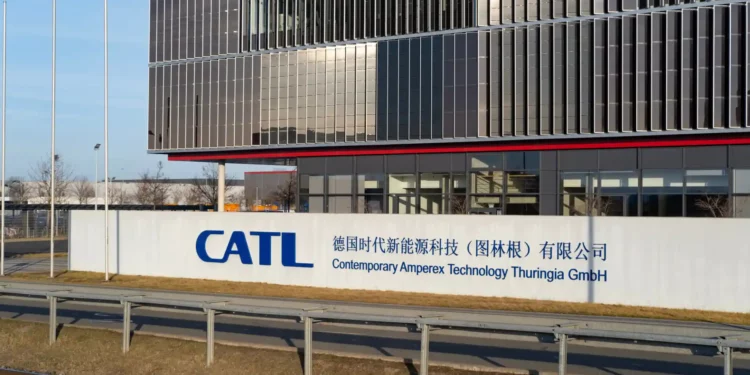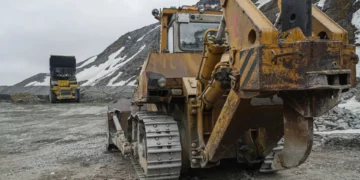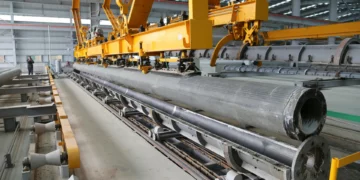The United States is lagging in battery technology and is worried about China’s CATL dominating the EV industry
The United States and China have strong connections in many areas, but tensions between them have strained their relationships. Now, a new battleground has emerged in the form of energy.
A Chinese company called Contemporary Amperex Technology Co. Limited (CATL) is a major player in the global competition to store clean energy, especially for electric vehicles (EVs)
CATL is the world’s largest battery maker for EVs, supplying technology to big names like Tesla, Volkswagen, and BMW. Despite its importance, CATL has mostly stayed out of US political discussions until recently.
In February, Duke Energy, a big US energy company, announced it would stop using CATL batteries.
This decision came after concerns were raised about these batteries being used at a military base in North Carolina. Duke Energy plans to replace them with batteries from companies in the US or allied countries.
Ford also faced criticism for its partnership with CATL. US lawmakers questioned a deal between the two companies to build a battery factory in Michigan. Some were worried about involving a Chinese company in such an important project. This increased focus on CATL led to little discussion of it in US government circles before.
Experts like Tu Le, the founder of Sino Auto Insights, say there is increasing pressure on US companies not to use any Chinese batteries. ” But if the US is going to be competitive on the global stage with EVs through 2030, they are going to have to use Chinese batteries. The US is lagging in battery technology.
Some people worry that relying on CATL batteries could make the US too dependent on Chinese technology. They fear this could be a problem if relations between the US and China worsen. There are also concerns that US government subsidies for green technology could end up supporting Chinese companies.
However, experts agree that without cheap Chinese batteries, the US doesn’t have a clear plan to make its streets more environmentally friendly. The founder of Dunne Insights, an EV consultancy, Michael Dunne, says the US is “years behind when it comes to batteries, battery supply chains, critical minerals. This is where our cupboard is bare.”
There is now a sense of urgency in the US to develop its own battery capacity. However, it could take five to ten years to catch up with China, which might not be fast enough to meet President Biden’s goal of having two-thirds of new cars be EVs by 2032.
The US government is worried about China dominating the EV industry. But officials also recognize that for EVs to become affordable for people, they’ll likely need to use Chinese batteries.
In a discussion panel last week, Energy Secretary Jennifer Granholm said, ” We are very concerned about China bigfooting our industry in the United States even as we’re building up this incredible backbone of manufacturing.”
The pushback against the Chinese in the US is already causing problems. Chinese companies are struggling to invest overseas due to regulatory uncertainty and political concerns.
While it is important to consider national security, experts caution against making decisions that could harm economic threats.
CATL says accusations about posing security threats are false. The company says it takes safety and security seriously, and its business in the US doesn’t interact with critical infrastructure.
Many Chinese companies are watching to see who the US elects as president. Despite tensions, US companies may find it hard to replace CATL. Telsa, for example, plans to use CATL machinery to build a new battery factory in Nevada

















